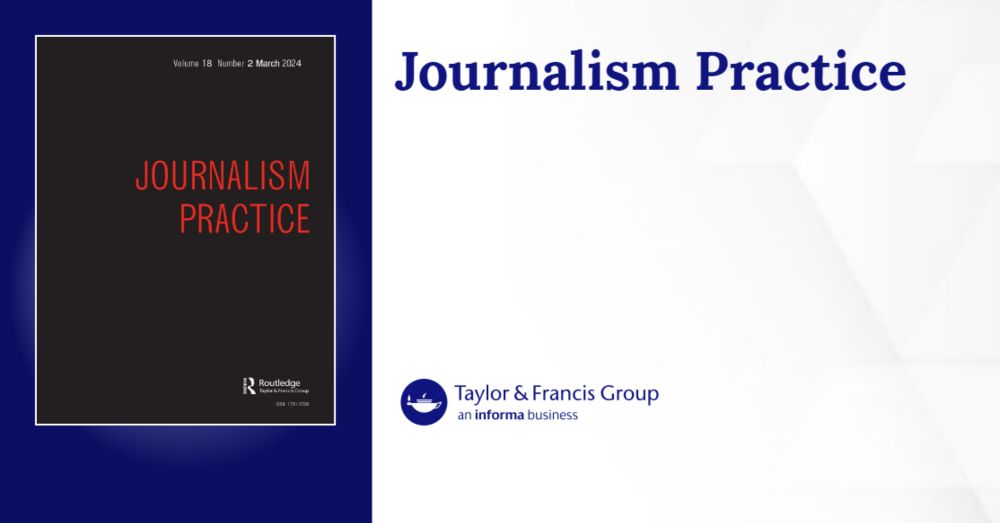
www.tandfonline.com/doi/full/10....
Curious to hear your thoughts!
#scicomm #journalism #openscience

www.tandfonline.com/doi/full/10....
Curious to hear your thoughts!
#scicomm #journalism #openscience
(See @eve.gd & @ernestopriego.com's great paper on the problems of judging the "container" research is published in: www.triple-c.at/index.php/tr...)
(See @eve.gd & @ernestopriego.com's great paper on the problems of judging the "container" research is published in: www.triple-c.at/index.php/tr...)
Others equated #openaccess with predatory, expressing suspicion about any journal that was free to read.
Others equated #openaccess with predatory, expressing suspicion about any journal that was free to read.
Some journalists, like this one, said they would never report on research from an unfamiliar journal:

Some journalists, like this one, said they would never report on research from an unfamiliar journal:
Others knew about them but were unconcerned: The journals were a problem in theory, or for their colleagues, but not a problem for them.
With years of experience, they said they had developed a "gut instinct" for telling "good" from "bad" journals.
Others knew about them but were unconcerned: The journals were a problem in theory, or for their colleagues, but not a problem for them.
With years of experience, they said they had developed a "gut instinct" for telling "good" from "bad" journals.
We asked about their perceptions of predatory journals, and what strategies they used to decide if a journal is trustworthy.
We asked about their perceptions of predatory journals, and what strategies they used to decide if a journal is trustworthy.
For example, some have no real peer review process, and publish more or less anything authors submit.
(Read about a hilarious example here: www.vox.com/2014/11/21/7...)

For example, some have no real peer review process, and publish more or less anything authors submit.
(Read about a hilarious example here: www.vox.com/2014/11/21/7...)
Read the full article (OA) here: doi.org/10.1080/1751...
#scicomm #envirocomm

Read the full article (OA) here: doi.org/10.1080/1751...
#scicomm #envirocomm

